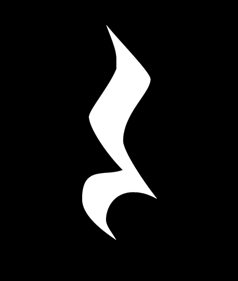Figure it Out
Nick Vidal
Illustration by Dominic Vidal
“What are your plans for the future?”
Ever since middle school, this question has been the center of my anxiety. Having now graduated from college, not much has changed. However, instead of others – parents, para-professionals and all other peculiar people – asking me about my plans, I sit here drinking my fifth beer on this wonderful Cinco De Mayo evening, torturing myself with the question: What now?
Like everyone, I was blindsided by the new reality we now find ourselves in. The nation is practically shutdown, people are concerned about their health now more than ever, and you can’t enter a store unless you look like you’re about to rob it. This was supposed to be the year when things got started for me, yet everything has stopped and uncertainty is the only thing that has been constant these past few weeks. What could happen next?
My mom enters the living room and finds me self-loathing on the couch. She can read my thoughts on my face.
She stands there smiling until I finally look up and notice her. “Figure it out,” she says, and exits laughing.
Originally from Roatán, Honduras, my mother arrived in New York City at the age sixteen. Of all the stories she told me about being “fresh off the boat” and thrown into the wild environment of an NYC public high school in the 1980s, my favorite is about how she learned to write a book report.
During my mother’s first English class, her teacher told the students to write a book report on any book of their choosing. When class was dismissed, my mother approached the teacher.
“What’s a book report?”
The teacher shot her a strange look. “Go figure it out!” she told my mother. So that’s what my mom did.
After school, she went to the library to pick out a book, settling on one called Cleopatra. She chose the book, she told me, because she thought the cover was pretty. Placing her copy of Cleopatra on an empty library table, my mother took out her sheets of loose-leaf, along with her red pen, and began to copy the book word for word. This is what she thought a book report was: you take a book and copy it. The book was thick as a bible, with microscopic text. After a while, her hands began to cramp. Her red pens began to run out of ink. Her will began to fade. She managed to transcribe the first ten pages before calling it quits and returning Cleopatra to her resting place on the library shelf and hoping for the best.
A week later, my mother was given back her paper with the word “PLAGIARISM” written BIG across each red page in black ink. Another note on another page decreed: “ONLY TEACHERS WRITE IN RED! F!” Once again, my mother walked up to the teacher after class.
“What’s plagiarism?”
Flustered, the teacher finally sat with my mother and taught her what a book report, and plagiarism, were. Years later, she would go on to teach me how to read and write. Spending hours explaining to me why "the" isn't spelled “da.” She would say, "Because English doesn't make sense sometimes, sweetheart.”
I get up off the couch. I link my phone to the speaker’s Bluetooth. I play “Lovely Day” by Bill Withers. I open my sixth beer, saying to myself, “Yeah, I'll figure this shit out.”
Nick Vidal is an Afro-Latino writer from Harlem, New York. His work consists mainly of non-fiction and poetry. He recently graduated from City College of New York, earning a B.A. in Creative Writing. He loves hip-hop, over-priced sneakers and cats. @Daydrinkingdave




